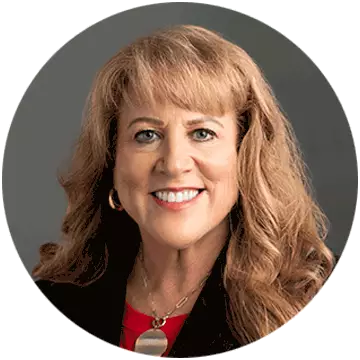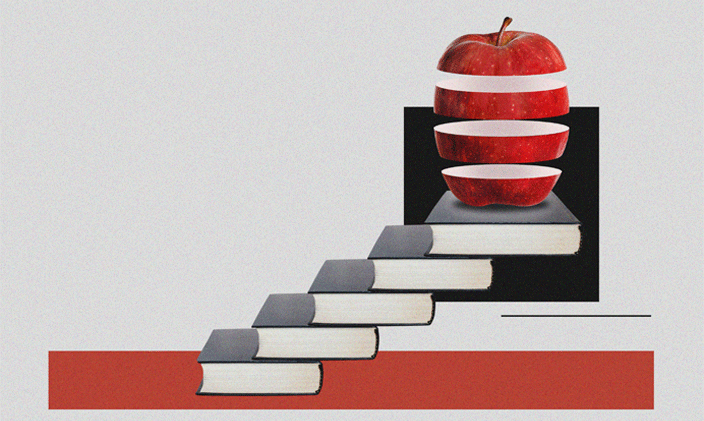How to make the most of your time as a student teacher

Written by Michael Feder

Reviewed by Pamela M. Roggeman, EdD, Dean, College of Education

If you’re interested in becoming a teacher and you’ve done your research, you’ve probably heard about student teaching. Student teaching is a form of experiential job training that typically occurs toward the end of an education degree program in which the aspiring teacher works in a hands-on role at a school. Student teaching is often an unpaid experience and can last anywhere from three months to an entire school year. It’s important to note that some programs and states may require licensure exams and things like background checks before student teaching begins.
Student teaching is the most real-world experience a teacher candidate will have in their program before they graduate and then enter the classroom in an official capacity. If you are beginning your student teaching, remember that while this is an important professional experience, you should also have fun and learn as much as you can along the way.
Don’t be afraid to ask for help
When you are completing your student teaching, reach out to your mentor teacher to ask questions and receive guidance when you feel you need it. Guidance from a cooperating teacher and other faculty supervisors might include developing lesson plans, managing classrooms and grading homework assignments. You can also ask questions about maintaining work-life balance and good mental health as a teacher.
According to the National Education Association, educators are professionals with a high likelihood of reporting anxiety , stress and burnout. By actively searching for help from mentors and administrators, ideally you will avoid burnout and improve your mental health.
Build a solid support system
Having a solid support system can help you make the most of your student teaching. Your support system can help you work your way through student teaching and enter the workforce. Your support system may include your:
- Program faculty
- Family
- Friends
- School mentor teacher
- School administrators and leaders
Each can potentially provide different kinds of support, including emotional and professional guidance.
Consider how you’ll cover the cost of living
Student teaching is normally an unpaid experience. So, you will need to consider how to cover the cost of living during your student teaching. Cost of living refers to the amount of money it takes to pay for your necessities, including rent, utilities, healthcare and food.
Many student teachers need to work side jobs to pay their bills while they complete their educational experience. This can include driving deliveries, working online as a tutor or working in a local business. Working a remote job or as a freelancer can give you more flexibility and space to earn money and complete your student teaching at the same time.
Get to know your host school
When you start student teaching, you should always try to get to know your host school, or your placement site, as well as possible. This normally means asking an administrator or your mentor teacher for a tour. This can allow introductions to other professionals and help you to feel more comfortable as you attend from day to day.
Getting to know your school or site can help you to feel more confident and more easily connect with the students. It can also be helpful to get to know as many of the site professionals and administrators as possible. They can potentially provide guidance and professional references as you enter the teaching profession.
Be yourself with the students
You don’t have to develop an entirely different persona when you begin teaching. In fact, it will probably be much easier if you just be yourself.
You can be yourself, and have fun, through some of the following activities:
- Outdoor games and activities
- Fun icebreaker games to get to know the students
- Projects where the students work in groups
Taking time to focus on active lessons and group work can bring extra fun into the classroom. As you complete your student teaching, the feedback you get from your experience with students may help you begin to form an idea of your teaching philosophy . What mindset and beliefs will you carry into your teaching career? Taking the time to have fun with your students can help you to better understand what your priorities are as a teacher.
Treat this time as a working interview
For those considering a career in education, one purpose of student teaching is to understand what the day-to-day work as a teacher would be like. Being at a school gaining experience helps with possibilities of a permanent position at schools for student teachers who prove themselves and are given the opportunity to apply for an open position later on.
You want your host school or site to see that you are passionate about education, that you are willing to learn and that your skills have developed enough for you to be independent in the classroom.
Adopt the mindset that student teaching is a working interview. Attending with the understanding that your administrators and mentor teachers may want to work with you full time in the future helps your mindset too.
Turn to various resources
It is important that you maintain mental and physical health as a student teacher. To maintain your balance as you study to become a teacher, turn to educational resources .
You can also tap into the guidance of mentor teachers and administrators, online mental health resources and professional resources such as Teachers Pay Teachers .
Becoming a teacher can be a long journey. However, the career has the potential to impact the lives of many students. Making the most of your time as a student teacher is one of the best ways you can set yourself up for success as a future full-time teacher. Learn everything you can, bond with your students and enjoy your first steps to becoming a teacher.
Education programs at University of Phoenix
Whether you’re taking the first step in your journey toward a career in education or looking to expand your existing knowledge and skill set, University of Phoenix offers a variety of degree and certificate options. These include:
- Bachelor of Science in Education/Early Childhood Education
: This program teaches curriculum planning, instructional practice, student engagement and many other valuable educational skills.
- Bachelor of Science in Education/Elementary Education
: If you’re eager to learn skills geared toward teaching at the elementary school level, this program helps build a solid foundation in teaching and leadership, learning strategies and more.
- Master of Arts in Education/Elementary Teacher Education
: This degree program is designed to prepare you for teacher licensure and will help you build confidence as a general studies teacher in an elementary classroom. This master’s program includes a clinical component (field experience and student teaching), allowing candidates to acquire knowledge, skills and abilities needed to positively impact student learning and development.
- Master of Arts in Education/Secondary Teacher Education
: This degree program is designed to prepare you for teacher licensure and will help you build confidence as a single-subject secondary teacher. This master’s program includes a clinical component (field experience and student teaching), allowing candidates to acquire knowledge, skills and abilities needed to positively impact student learning and development.
- Graduate Initial Teacher Certificate/Elementary
: This certificate is intended for students with no teaching experience. It builds education knowledge and a skill set for those interested in teaching at the elementary level.
- Graduate Initial Teacher Certificate/Secondary
: This certificate is intended for students with no teaching experience. It builds education knowledge and a skill set for those interested in teaching at the secondary level.

ABOUT THE AUTHOR
A graduate of Johns Hopkins University and its Writing Seminars program and winner of the Stephen A. Dixon Literary Prize, Michael Feder brings an eye for detail and a passion for research to every article he writes. His academic and professional background includes experience in marketing, content development, script writing and SEO. Today, he works as a multimedia specialist at University of Phoenix where he covers a variety of topics ranging from healthcare to IT.

ABOUT THE REVIEWER
As dean of the University of Phoenix College of Education, Pamela Roggeman has spent over a decade in higher education teacher preparation in both the public and private sector. Her experience has included national partnerships that help to advance thought leadership in the field of education. Dr. Roggeman also serves as the President of the Arizona Educational Foundation’s Board of Directors.
This article has been vetted by University of Phoenix's editorial advisory committee.
Read more about our editorial process.
Read more articles like this:


